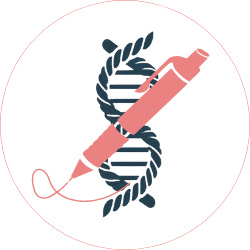You’ve probably come across the terms “cognition” or “cognitive performance” in conversations, especially among students, athletes, business leaders, or academics. Yet, these words often float by without a clear definition. What do they really mean?
At its core, cognitive performance refers to how effectively your brain processes information, makes decisions, and solves problems. It’s the unseen force behind your ability to focus on work, strategise during training, or juggle life’s daily demands. And just like physical fitness or skill mastery, cognition isn’t fixed—you can optimise it, sharpen it, and make it work better for you.
What's cognition?
In simple terms, cognition refers to your ability to take in, process, understand, and use information. Some key components of cognition include (but are not limited to):
Alertness refers to how awake and ready to take in information you are. Think of it as how "on" your brain is at any moment. How you perceive and interpret your surroundings. How likely you are to spot behaviours of others, and how likely you are to identify opportunities or risks in your personal or professional life
Attention relates to your ability to remain focused and on task while ignoring distractions. Attention is one of your most valuable resources. In fact, other people and companies relentlessly compete for your attention. Regardless of your ability to focus your attention, you should always make it your priority to work on and improve your attention reserves, attention span, and ability to focus. Attention in the foundation of your cognitive abilities. Think of it like a mental equivalent of Zone 2 training for your body.
Reaction time is how fast your brain can process information, respond to external circumstances, make a decision, or initiate an action.
Working memory is your brain's short-term storage. It allows you to hold information briefly to help you execute a task. The classic example is remembering a phone number long enough to dial it. Once you dial it, you can't remember it anymore.
Learning and memory relate to your brain's long-term storage. After you acquire information, your brain needs to process and store it for later use. For example, you can recall mission details because your brain effectively stores the information you received during training.
Reasoning and problem-solving skills help you draw logical conclusions from the information you have and find solutions to challenges.
Planning is your ability to think ahead, create a sequence of actions or tasks, and prioritize to achieve a specific goal.
Decision-making is your ability to evaluate multiple options and select the best course of action.
Social acuity is the awareness of, control over, and ability to manage interactions with others. High social acuity is the ability to read other people’s cues and then act appropriately.
Spiritual readiness includes your ability to maintain beliefs, principles, and values needed to provide support in times of stress. Spiritual readiness includes the development of personal qualities needed to sustain a person in times of stress, hardship, and tragedy. These personal qualities may come from religious, philosophical or human values, and often form the basis for character, disposition,
decision making and integrity.
You engage multiple aspects of your cognition all the time.
For example, a go/no-go decision in business or when deciding on a medical treatment engages your alertness, attention, decision-making, and reaction time, while also tapping into your spiritual readiness, planning, and short term memory. Deficiencies in any of those areas can lead to substandard performance (like making a wrong business decision that we regret later, or making an irreversible decision regarding medical treatment that can have life-long impact).
This means that your overall cognitive performance in any given moment is dependant on its weakest element. This is critical when deciding which areas of your cognitive performance to improve.
Write down and reflect:
What is your weakest link?
Why?
How can you address it? Who can help you?
During flight operations, working memory helps to manage information, while problem-solving, reasoning, and reaction time allows you to deal with unexpected challenges. Any occupation that requires working with data or involves future planning relies heavily on learning, long- and short-term memory, and reasoning to integrate information and data with previous experiences; these jobs also require planning and decision-making to create a sound strategy.
In your everyday life, you also use different combinations of your cognitive functions to organise and plan your week, choose a life partner, solve puzzles, decide who is in your social circles, learn new skills or concepts, make financial decisions, decide on large purchases, make other financial decision, among other things.
What's cognitive performance?
“Cognitive performance” is a measure of how well your brain functions at performing tasks that require thinking and processing, learning, and remembering information.
Not all aspects of cognition are created equal, and different tasks tap into different cognitive skills. This is why your performance can shine in one area yet falter in another. You might excel at sustaining focus for hours but find yourself forgetful when it comes to recalling details.
Strength in one cognitive domain doesn’t guarantee success across the board—a reminder that cognition is as multifaceted as it is trainable.
Different tests are used to measure performance in different aspects of cognition. You wouldn't use the same test to measure muscular strength and cardiovascular endurance. Likewise, no single test can assess all your cognitive abilities.
For example, the psychomotor vigilance test (PVT) involves pressing a button in response to a visual stimulus. PVT is frequently used in research studies to assess the effects of sleep deprivation and fatigue on alertness, attention, and reaction time. But, a different test, such as the delayed recall test, measures your ability to retain information.
It's important to make the distinction between mental performance from cognitive performance. Mental performance is a broad concept that does include cognitive abilities, but it also includes emotional regulation, stress optimisation, motivation, and resilience.
In simple terms, mental performance includes both cognitive and emotional factors.
How to boost your cognitive performance
Just like any other aspect of your performance, cognition can be optimised. The science on the effectiveness of brain games and training to boost cognitive performance is still evolving. But investing in healthy habits across the well-researched domains is an effective way to sharpen your brain.
Cognitive performance relies heavily on the following aspects:
Exercise. Physical fitness isn't just good for your body, it is one of the most significant tools to enhance cognitive performance. Physical activity increases blood flow and fuel to brain cells. More blood, oxygen, and glucose reaching your brain directly supports all aspects of your cognition.
In addition, exercise promotes the release of brain chemicals that act as “brain fertiliser” to support the growth and maintenance of brain connections and improve learning and memory. High-intensity exercise can also help to boost alertness and attention.Sleep is a fundamental pillar of cognitive performance. It also improves physical readiness and helps with optimal nutrition and appetite regulation. Sleep gives your brain much needed rest and recovery from intense daily activity. When you sleep, your brain resets alertness and attention, consolidates memories, clears out toxins, and prepares for the next day.
After being awake for 18 hours, your alertness, attention, reaction times, and working memory take a very sharp dive. Over time, sleep loss builds up a sleep debt that can further hurt your cognitive performance. The good news is that paying off sleep debt corrects the cognitive impairment.Nutrition has direct effects on your brain function. Your brain needs nutrients your body can't make, and you must get these nutrients from what you eat. Without a steady supply of these nutrients, your cognitive function can suffer. A diet rich in fibrous fruits and vegetables, whole-grain carbohydrates, high-quality proteins, and healthy fats can provide the nutrients your brain needs to function at its best. Also, drink plenty of water because dehydration can impair your thinking, focus, and memory.
Stress optimisation is using stress as a tool to reach your goals instead of letting it get in the way of your performance. But too much or prolonged stress can disrupt your memory and learning, reduce your attention, and impair your decision-making. It's impossible to eliminate stress from your life. But, you can use strategies to keep your stress level within a zone that supports your personal optimal functioning.
Social engagement can also boost your cognitive performance. Spending time with a friend or someone close to you, family, and your community can stimulate your brain by encouraging conversations, problem-solving, conflict resolution, and emotional connection.
Spiritual readiness: your beliefs, principles, and values are needed to provide support in times of stress and help to greatly support overall cognitive performance, especially in decision-making and planning aspects of your cognitive framework. Spiritual engagement can also directly link to social engagement element by providing you with a community or support group.
Challenging activities can help you improve specific aspects of your cognition. Think of your cognitive abilities as muscles—the more you use them, the stronger they get. Activities such as puzzles and playing strategic, logic, and memory games can help you improve your memory, reasoning, and problem-solving skills. Learning new skills, concepts, and languages can also help keep your brain strong.
Who can help?
Some organisations offer support to their employees or members aimed at optimising cognitive performance. For the rest of us, here are few example of professionals who can guide you in sharpening your cognitive abilities and improving your overall performance.
Certified Mental Performance Consultants (CMPC) are professionals with advanced degrees in fields such as sports science, psychology, and related disciplines (clinical psychology, educational psychology, clinical mental health counselling, social work, and industrial-organisational psychology). CMPCs are qualified to support various aspects of performance, including enhancing focus and communication, reducing performance anxiety, building confidence, setting and achieving goals, fostering resilience, and strengthening teamwork.
Occupational Therapists (OT) can help to minimise the effects of stress (or injury) on physiological, physical, and social health by improving functional cognition. This includes the cognitive ability to perform daily life tasks that incorporate aspects of metacognition (being aware of and understanding your own thought process), executive function, performance skills, and patterns. The goal of this approach is to identify performance capacity and then improve it through the use of strategies, habits, routines, and contextual and environmental resources to maximise that performance. OTs also assist in behavioural changes, such as like meeting your sleep needs, can boost overall performance.
Cognitive Performance Specialists (CPS) are part of a field of professionals with backgrounds spanning kinesiology, psychology, and motor learning and control professionals. In our view the evidence of the effectiveness of those specialists is questionable, and we recommend to consider other providers.
Cognitive Enhancement Practitioners (CEP) are qualified to interpret cognitive test results and provide actionable feedback to improve performance. If needed, they can also refer to other available medical resources. These practitioners also offer training and education to help develop cognitive and behavioral skills to enhance memory, attention and focus, problem-solving, emotional regulation, energy management, interpersonal skills, and goal setting. CEPs can help you to learn adaptive strategies for mild traumatic-brain-injury-related cognitive deficits. Cognitive enhancement practitioners can also advise or support research on cognitive and psychological performance. They are available mostly to people working in the armed services.
Mental health providers (MHPs) are made up of a range of roles such as counsellors, or psychologists who specialise in clinical care, sports performance, and neurophysiological testing, among others. Mental health providers’ abilities to support cognitive enhancement vary with their specific role, and many modalities offered by those specialists can have questionable results. With the exception of high-quality Cognitive Behavioural Therapists who can offer short-term support in certain evidence-based areas, we recommend to avoid using their services, if they can not outline the specific outcome you will achieve within a defined time frame (typically not more than 4-6 sessions).
Physical performance providers (PPPs) such as dieticians, athletic trainers, strength-and-conditioning coaches, personal trainer and physical therapists support cognitive enhancement by addressing the physical aspects of readiness. Evidence-based dieticians can create meal plans to match your specific needs and fuel brain function. Strength-and-conditioning coaches can develop exercise routines to optimise your physical health, supporting your cognitive performance. Athletic trainers and physical therapists can assist you in recovering from injury so you can remain active. Choose those PPPs who are highly trained, long-term focused, personalise their approach to your needs, and focus on tried and tested evidence-based solutions.
Cognition is an important aspect of your performance and success. Take advantage of resources available to you to optimise your cognitive performance. Like any other aspect of human performance, enhancing your cognition requires the right tools, effort, and consistency.






